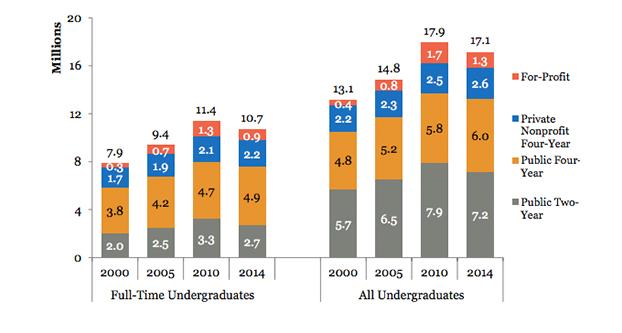When I think back to 2011 around this time, I am immediately brought back to overwhelming feelings in regards to where I was applying to college. At the time, my close friends were applying to juggernauts like UC Berkeley and Stanford. I found myself at a crossroads.
I knew I could apply to schools like those, but when it came to talking to my parents about how my education would be financed, I was faced with a bitter truth. I could not afford going to a top-tier institution without acquiring mounds of student debt along the way.
So I accepted my fate, but I did so with the tiniest bit of shame that no one talks about when it comes to attending community college. For some reason, some view the decision of going to a junior college as one of resignation, without realizing how wise a choice it actually is.
On Oct. 13, California Gov. Jerry Brown signed Assembly Bill 19 in hopes of establishing the California College Promise Innovation Grant Program, which will waive fees for first-year full-time students who complete a free application for federal student aid, or FAFSA.
This would offer high school graduates the opportunity to pursue a higher education, even if it isn’t among the ranks of schools like UC Berkeley or Stanford.
But why does it matter if they don’t spend their first few years at a highly ranked or more prestigious school?
When I told people I was opting for Fresno City College, I was met with mixed reactions — some thought I was wasting my talents, some commended me for making a financially responsible choice and others shared their less than great attitudes toward students in community college.
Because of these mixed reactions, I personally struggled with the decision to stay local, live with my parents and opt to go to a junior college.
There are quite a few factors that feed into the negative stereotypes against students who choose community college over public or private four-year universities.
Is it because of the production people make out of sending their kids to college? Or the dozens of Target or Walmart commercials centered around moving into a dorm and buying cheap plastic wastebaskets or toaster ovens in preparations for dorm life?
Part of the problem might be the way that America romanticizes the pomp and circumstance around high school graduation and the pressures that fall upon high school graduates thereafter.
Another part of the problem stems from the fact that there is no soft transition between high school students having to ask permission to use the restroom to eventually having to make massively important decisions for their lives. From the second they enter college, first-year students are asked almost daily what their majors are and what they want to do with them.
Community college students pursue general education that allows them to get a foothold in different majors and possible career fields without pressure to make an immediate decision that they may end up regretting many semesters and thousands of dollars, later.
On paper, choosing a city college is the best possible decision for incoming students, but there will always be naysayers that reinforce stereotypes that have long-existed around going to community college.
However, choosing a junior college does not reflect upon intelligence, work ethic or grand plans that you have for your life.
If anyone knows that negative stereotypes of community college are untrue, it is students who have chosen the transfer or two-year college path before eventually transferring to a 4-year.
When I chose to go the community college route, I was afraid that I would miss out on the “college experience” or feel robbed of independence if they choose to remain living at home. As time went on, I realized that while my college experience was different, it was still just that — a college experience.
I made friends, grew academically and was able to work and save money for when I was ready to transfer to Fresno State — a decision I am grateful that I made each and every day.
Students who choose community college aren’t resigning to an educational experience littered with mediocrity, but instead are choosing a financial or educational situation that is best-suited for them.





Nonewhere Listens • Dec 5, 2017 at 9:43 pm
Amber, not having a large debt at the end of four years will put you way ahead of the game. You are quite literate and sensible. Good luck.